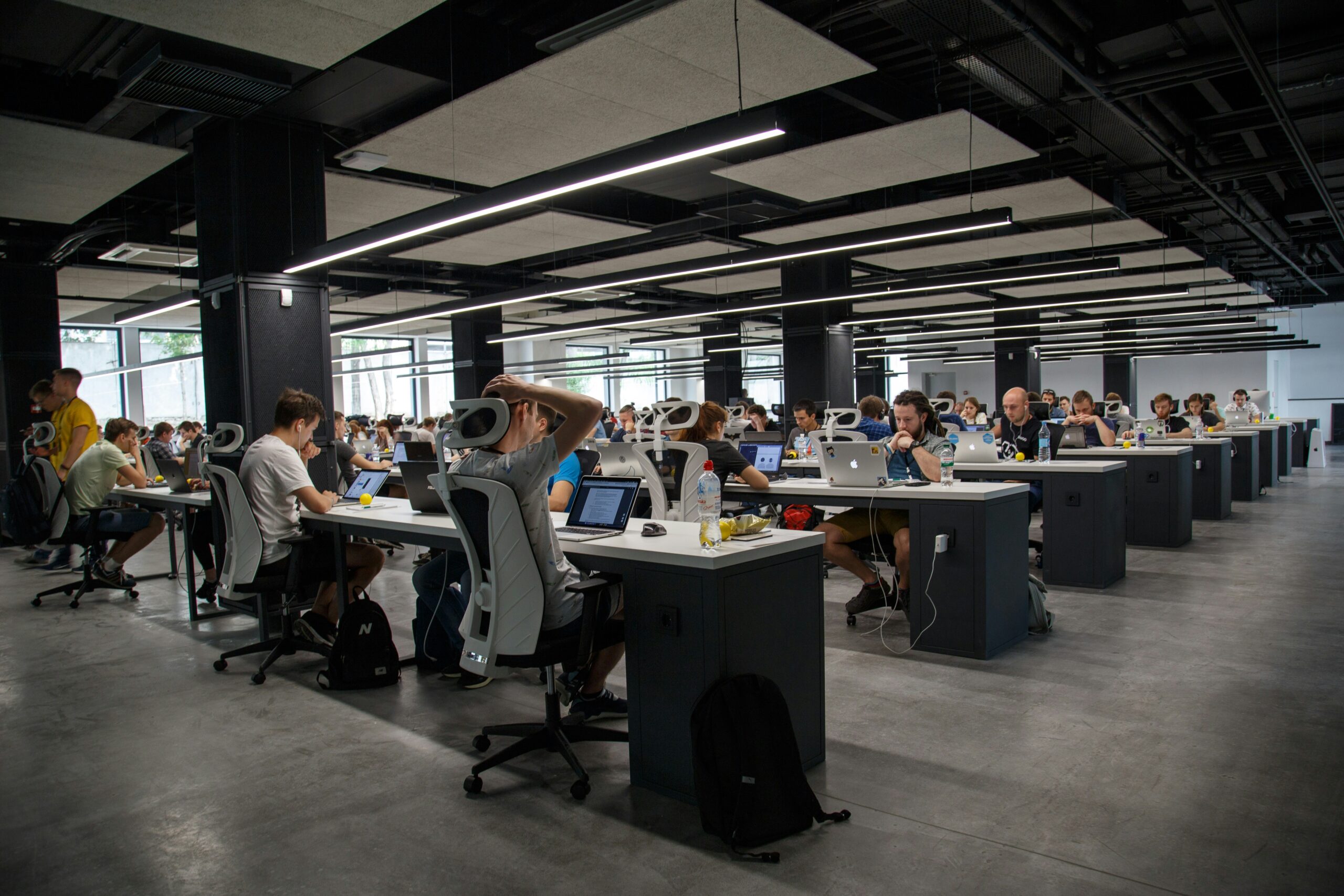
Artificial intelligence (AI) is no longer a futuristic concept—it actively shapes how careers evolve today. From automating repetitive tasks to enabling creative problem-solving, AI’s role in shaping modern careers is undeniable. Professionals across industries must adapt to new technologies and integrate AI into their skill sets to remain competitive.
AI enhances efficiency and productivity by taking over mundane tasks, allowing employees to focus on higher-value work. For instance, AI algorithms in finance analyze massive datasets within seconds, helping analysts make informed decisions faster than ever. Similarly, AI assists in diagnostic imaging and predicting patient outcomes in healthcare, freeing doctors and nurses to focus on personalized care. This trend extends to marketing, education, engineering, and technology, where AI drives innovation and efficiency.
Beyond efficiency, AI also promotes creativity. Design, content creation, and research professionals leverage AI tools to explore new ideas, test simulations, and refine outputs. In this way, AI supports existing roles and enhances them, demonstrating its transformative impact on modern careers.
AI-Driven Career Opportunities
The rise of AI has changed job roles and created new career paths. Jobs like AI specialists, machine learning engineers, data scientists, and AI ethicists are in high demand. Companies seek individuals who can develop AI solutions or interpret AI-driven insights to guide business strategy.
Traditional careers are also evolving. Human resource professionals now use AI-powered recruitment tools to screen candidates efficiently and fairly. Sales teams rely on AI for customer behavior prediction and automated lead scoring, while educators use AI to create personalized student learning experiences. These examples show how AI integrates into both specialized and mainstream careers.
Even roles that were once considered “non-technical” are being transformed. Marketing managers, supply chain coordinators, and financial planners now work alongside AI tools to optimize workflows, anticipate trends, and make data-driven decisions. By embracing AI, employees can position themselves as indispensable organizational contributors.
Essential AI Skills for the Modern Workforce
To thrive in an AI-driven world, professionals must acquire specific skills. Technical skills like programming, data analysis, and machine learning remain valuable. However, soft skills like adaptability, critical thinking, emotional intelligence, and creativity are equally crucial. AI can handle repetitive or data-heavy tasks, but human judgment, empathy, and problem-solving cannot be fully automated.
AI literacy is also essential for non-technical employees. Marketing professionals, for example, can use AI tools to predict consumer behavior, optimize campaigns, and analyze engagement metrics. Educators can leverage AI to tailor lessons, assess student progress, and suggest targeted interventions. Even roles like project management benefit from AI, as it can provide predictive analytics and workflow optimization tools. By understanding AI applications, professionals enhance their versatility and future-proof their careers.
Continuous learning is essential. Online courses, certifications, workshops, and hands-on projects provide opportunities to acquire AI-related skills. Companies that invest in AI training for their workforce report higher productivity, innovation, and employee satisfaction. Therefore, embracing AI skills is both a personal and organizational imperative.
AI Enhancing Decision-Making
One of AI’s most transformative effects is on decision-making. AI tools analyze patterns, predict outcomes, and provide actionable insights, reducing human error. They also predict market fluctuations, assess risk, and improve investment strategies in finance. In healthcare, AI analyzes patient data to recommend treatments, identify potential complications, and streamline operations.
Professionals who leverage AI in decision-making gain a competitive advantage. Project managers, for instance, can use AI-driven analytics to anticipate risks, allocate resources efficiently, and optimize project timelines. Marketing professionals can use AI to track campaign performance and adjust real-time strategies. By integrating AI into decision-making, employees enhance strategic thinking and operational efficiency, reinforcing AI’s role in shaping modern careers.
AI and Remote Work Evolution
AI is also central to the growth of remote and hybrid work models. Virtual assistants, AI-driven project management platforms, and automated scheduling tools make remote teamwork more efficient. These technologies reduce the friction of virtual collaboration and enable teams to maintain productivity while enjoying flexible schedules.
Additionally, AI helps identify skill gaps in remote teams. Platforms can recommend personalized training programs, online courses, and certifications to upskill employees. This approach ensures continuous growth, even when teams are dispersed across locations. Organizations foster employee engagement, productivity, and satisfaction by aligning AI capabilities with professional development.
Overcoming Challenges and Ethical Considerations
Despite its advantages, AI presents challenges. Automation can displace specific roles, creating uncertainty in the workforce. Ethical concerns around AI decision-making, bias, and data privacy also require careful attention. Professionals must develop critical thinking and ethical literacy to navigate these issues responsibly.
Organizations have a responsibility to ensure AI adoption aligns with ethical standards. Transparency, fairness, and accountability are essential principles. Workers who understand AI ethics and responsible usage are highly valued, as they help prevent misuse and maintain trust in AI systems. Addressing these challenges reinforces AI’s constructive role in modern career development.
Preparing for an AI-Driven Future
The future workforce will increasingly rely on AI to enhance productivity, creativity, and decision-making. Professionals should actively pursue AI-related training, collaborate effectively with AI systems, and remain open to evolving career paths. Organizations should cultivate a culture of continuous learning, innovation, and responsible AI adoption.
By embracing AI, individuals gain a competitive edge, while organizations benefit from efficiency, innovation, and data-driven decision-making. Understanding AI’s role in shaping modern careers ensures that employees and companies thrive in a rapidly changing professional landscape.